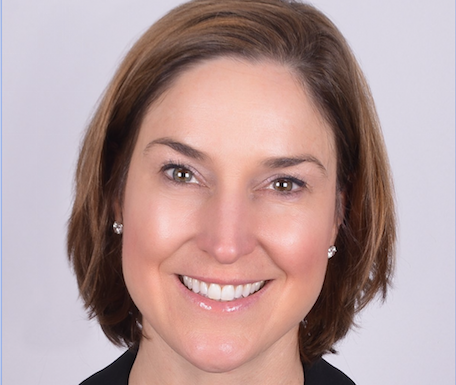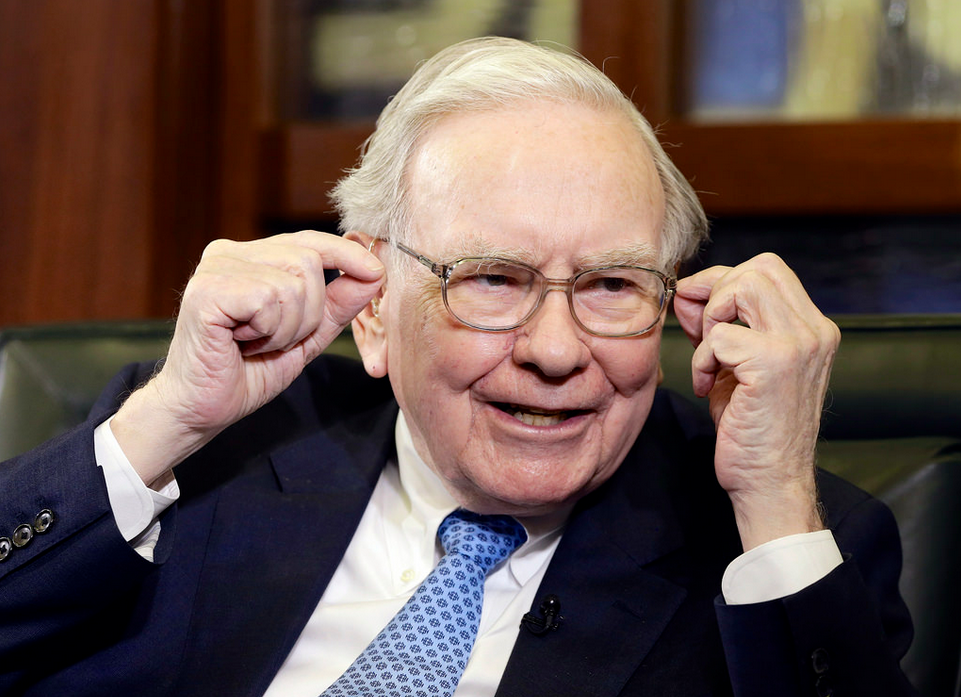Although she recognizes that MiFID II will promote the discretionary management of portfolios, Silvia García-Castaño, CIO and Head of Discretionary Portfolio Management at BNP Paribas Wealth Management Spain lets us know in this interview the importance of this service that will coexist with financial advisory services in order to have best tailor offering solutions for wealth management clients. In fact, adaptation to the client and social commitment are some of the milestones for the success in the private banking business.
The asset management and advisory industry in Spain started the second half of the year with much anticipated developments: the application of MiFID II to the Spanish legal system, whose objective is to provide greater protection to investors by establishing a legal framework of professionalism and transparency for its relationship with financial entities. For Silvia García-Castaño, Head of Discretionary Portfolio Management at BNP Paribas Wealth Management Spain, the application of the directive “is good news that allows us to finally adapt ourselves in the new rules”, although she emphasizes that the publication of the last Royal Decree Law does not represent major developments, as most of the relevant issues for the industry are still pending from regulatory development and are not detailed enough to solve the doubts amongst investors that have arisen in the recent months.
But, despite the questions that still remain on the table, she believes that her entity has already done its homework strengthening their processes: “Entities have already developed numerous projects for a long time to adapt to the new demands of MiFID II. In our case, many of these measures have already been implemented in recent years, nonetheless our procedures have been reviewed. Our entity is in a continuous evolution, we have already progressed adequately in the past but we continue to dedicate our best resources in order to continue to lead in this area”, she said and highlights:” Risk control has always been one of our strengths. We want to build durable relationships with our clients, this is the reason why we have been investing in being objective and transparent for years. “
The value of discretionary portfolio management
Mrs. García-Castaño is responsible for Discretionary Portfolio Management at BNP Paribas Wealth Management, and she believes that MiFID II will strengthen the value of this service in combination with advisory services: “I firmly believe that MiFID II help provide a better service for the client. Discretionary management and advisory are two services that can coexist and complement each other very well. There are clients who feel very comfortable delegating the management to professionals for an important part of their wealth but keep a separate part to take their own decisions. The more we integrate these two services, the more added value we will provide to our customers”, she explains.
All in all, she recognizes that MiFID II will promote discretional portfolio management, as it is a service that makes life easier to clients as teams of experts are the ones who take the decisions on their behalf. “MiFID II strengthens the value of a service that already existed and which is expensive for financial institutions as it integrates big capabilities in analysis, investment strategy, selection and monitoring of financial instruments services, portfolio construction, monitoring, risk control, and IT”, she adds.
This process is also facilitated by asset managers, who had to launch new clean share classes for their range of funds: “The situation over a year ago in relation to clean share classes was unsatisfactory. Although the progress of the asset managers has not been as quick as we may have wished, it has been sufficient to adapt to MiFID II in time, ” said the expert.
Funds of funds, funds and mandates
As vehicles to materialize this discretionary portfolio management, Mrs. García-Castaño highlights the beauty of the fund of funds as an investment product, but she also highlights the importance of the direct lines funds and mandates. “The investment fund is an optimal instrument for the Spanish investor. At BNP Paribas we have always opted for funds of funds, under an open architecture scheme. Among our range are our multi-management funds that already have a 20 year track record. These have been a very suitable instrument for the construction of global and diversified portfolios”, she said.
“Our mission, discretionary portfolio management, must adapt to all phases of a client’s life. For this reason, at BNP Paribas we have designed a range of investment solutions, fiscally efficient and adapted to the different needs of our customers. Within this range, there are funds with direct investments, but also discretionary portfolio management mandates through other types of investment vehicles, to adapt to the specific needs of each client. New fund solutions must also be adapted to the new requirements of MiFID II”, says García-Castaño about his offering.
In addition to this, she stresses that discretionary portfolio management must incorporate both active and passive management: “Knowing when to use active or passive management is part of our portfolio decision-making process. Asset managers must be modest and concentrate efforts on what we do best and actively manage, our portfolios to generate alpha and differentiate ourselves from the rest. For the rest of assets, styles or geographical areas, it is important to find the best of every type of asset in the industry”, she says.
On the impulse of the ETFs under potential new fiscal efficient transferability (which could finally reverse), she foresees a wider use of ETFs over time: “Currently, we use the ETFs in our investment solutions or for those customers who don’t mind the further tax penalties ETFs suffer In these cases, we have implemented an analysis and selection process similar to the one we use with investment funds, with an external partner, Trackinsights. The day these products are available for the “traspasos” process, ETFs products will be also used with the rest of clients”.
Different collection options
According to a varied offer of services and products, the entity also offers different collection options, the CIO said: explicit in discretionary portfolio management and diverse in advice services: “In the advisory service, the client can choose between the payment of an explicit commission, eliminating retrocessions, or continue as before, without an explicit payment where the bank is remunerated through retrocessions. The customer has the last word, according to their needs and preferences “, explains Mrs. García-Castaño.
All in all, to give best service to a client that has been changing over time: “Since we started our private banking activity, we have been observing changes in the financial behavior of our clients. Currently, our client of private banking and discretionary management, in particular, has a greater financial knowledge and is generally accustomed to having lot of information. Our client has always been demanding, the difference is that now they have all the information at their disposal. Therefore, it is very important to provide our client with a consistent portfolio management service adapting portfolios to our market vision. Working with risk scenarios and quantitative tools always helps, but the key is to know how to adapt to each of our clients, with great dedication and communication. The financial crisis has reinforced the relationship with our clients allowing us to get much closer to them and their needs.”, explains the expert.
Social commitment and responsible investment
Adapting to the client is on its DNA, together with its commitment to society. “As an international bank, we have the strong commitment and we dedicate human, technological and financial resources to be part of change. Our aim is to transform our operational system to be more digital and be the preferred partner of our customers”, explains Mrs. García-Castaño.
According to the CIO, “it is a main objective for BNP Paribas to bring all capabilities we have as financiers, buyers and employers at the service of four fundamental pillars: energy transition, entrepreneurship, support for future generations and local ecosystems”. To this purpose, the Company Engagement department has been created at the center of the organization and with the presence of the steering committee, to intensify its positive impact on the society: “Being a bank for a changing world means continuing to be the partner of our clients to contribute to a more sustainable and egalitarian world”, she adds.
In fact, beyond his social commitment, Mrs. García-Castaño highlights that BNP Paribas Asset Management, is one of the pioneers in responsible investments. “We have been using ESG criteria in its portfolio management for more than 15 years, with assets under management in excess of 230,000 million euros with ESG philosophy. BNP Paribas is currently a member of international organizations advisory committees such as PRI, the IIGCC and FAO / OECD, and the group is rated by PRI as A +, for their responsible investment approach”. And she explains that in BNP Paribas Wealth Management they take advantage of these capabilities of BNP Paribas AM. “In addition, we have an offer of socially responsible investments in continuous development, which will have a fundamental role in our future growth”.
BNP Paribas social responsible investment criteria include the adoption of the 10 Principles of the Global Compact regarding the selection of issuers and strict sectorial policies to monitor sensitive sectors investments.
To grow in a market with big potential…
With these principles, the entity seeks to grow in a potentially large market, although with a strategic business reorientation towards high net worth segment (see appendix): “Economic Spanish growth in recent years has been very resilient. Low interest rates for our superior domestic growth profile in recent years led to higher growth than our European counterparts”, she says, also mentioning the importance of the real estate and tourism sector development.
“Expansionary monetary policy has been supportive for asset valuations and contributing to a positive wealth effect. Our growth forecasts are positive for coming years both in Europe and in Spain”, predicts Mrs. García-Castaño. “The still accommodative monetary policy will continue supporting business and real estate dynamism so we forecast a positive private banking trend.”
… thanks to internal talent
But to be able to grow in private banking, the talent of the team is key. Mrs. García-Castaño explains that “recruiting the best talent is an art. We are keen on attracting talent leveraging on the attractiveness of the BNP Paribas brand. Our employee rotation is very low. We are experts on building stable teams that fit and develop together. Our international approach and the commitment of our group to develop the Spanish unit is a motivation. Those who work at BNP Paribas know that we belong to a large group, highly solvent and with a long successful history”.
To retain and manage talent, the group invests a lot in internal culture, in creating an atmosphere in which the employee feels motivated. “Our private bank talks a lot about investments but also about our values, being easy to feel as a family and I think this is perceived by our clients. The big sense of belonging to this group is reinforced by working close to other multidisciplinary teams. Another motivating factor is BNP Paribas’ commitment to relevant issues such as climate change or diversity. As a result, our group has for many years developed a corporate social responsibility policy that includes environmental, social and good corporate governance criteria in the day-to-day of all our entity’s activities”, she adds.
Because of all this factors and because of the significant size of the bank, we also have to face challenges like increasing regulation, we don’t foresee our talent moving to independent firms: “Entities need an adequate size and many resources to best meet regulatory requirements on one hand and to provide with best experts and investment resources to our clients”.
And she also rules out that the roboadvisors can replace the private banker: “The roboadvisors will develop but it does not mean that they are going to replace the private banking. Quantitative models have always existed and new technology makes these models more powerful. We have always used this type of models and we continue developing them in order to help us in our decision-making process and to support portfolio management”.
BNP Paribas Wealth Management will focus on the segment of higher net worth clients after the recent sell of the Mass Affluent branch – with 550 million euros in assets – to Banca March. With this operation, that will be fully completed in the coming months once the pertinent authorizations are received, a part of BNP Paribas’ private banking business will be integrated into Banca March.
BNP Paribas Wealth Management continues with his specialization in the high net worth segment, being currently one of the most important international firms in the Spanish market with assets under management over 7,000 million euros
Going forward, BNP Paribas Group is refocusing its Wealth Management strategy in Spain and in other European countries towards a business model that specializes in high net worth clients, with a special focus on entrepreneurs, to which we can provide a greater added value in terms of personalized service and offering, taking advantage of the group’s capabilities (corporate and institutional banking, Global Markets, BNP Paribas Asset Management, Real Estate, etc.).
The entity specializes in the High Net worth and Ultra High Net worth customer segments, which so far accounted for 90% of the volume of total assets under management. This is a segment where you can add more value to your customers by providing a personalized service and a differentiated product offering.
For BNP Paribas, Spain continues to be a strategic country for the Wealth Management activity, with a 2021 plan that includes investments in technology to improve service to his customers.
BNP Paribas works on an open architecture scheme for years but they also have great experience in managing direct lines portfolios: “In 1998 we already managed one of the largest funds of the Spanish market under an open architecture process. On January 1st, 2003, we launched our range of fund mandates coinciding with new fiscally efficient transfers’ regulation. We could say that we are pioneers in this topic “, said García-Castaño. In her opinion, the benefits of open architecture remain as this investing style gives you access to the best expertise of each asset manager and increases diversification and she remembers that the combination of different managers reduces the portfolio volatility “. For me, open architecture is not taking 5 stars rated funds and neither to have an infinite palette of colours, but choosing those colours you really need and fit perfectly with others improving the beauty of the whole picture,” she says.
The expert argues that “funds are an interesting vehicle that allows you to postpone capital gains payment, so it will continue to be attractive for Spanish clients as long as our tax regime is not modified. But in addition, funds bring numerous advantages to customers in terms of diversification, economies of scale, liquidity, legal protection, etc.”
At BNP Paribas Wealth Management they work with a wide selection of more than 80 international managers that are interesting due to their management style, capabilities and resources: “The keys for selection analysis are: analysis of capabilities, consistency and sustainability. To do this, we conducted a quantitative and qualitative analysis, being especially restrictive with everything that has to do with the control and monitoring of risks “, explains Mrs. García-Castaño. In this work, they are not alone, FundQuest , acquired by BNP Paribas in 2005, a major worldwide player in the selection and analysis of investment funds, managing more than 50.000 million euros on a multi-management approach.
On the potential fiscal and legal changes of the sicavs, she recognizes that uncertainty is weighing on these vehicles, which have been losing assets in recent years. “The whole industry is waiting for the final decision on this issue, but it would be a pity to punish this vehicle since the impact would be very negative not only for the private banking industry but also for the whole Spanish economy”, she says.
In her opinion, there is much ignorance regarding this vehicle that is available to all savers and that does not have any privilege with respect to investment funds. And warns that unfavorable changes could international outflows from Spain: “In the countries around us there are other vehicles that work as an alternative to the SICAVs, so we could see a movement of capital to other jurisdictions.”
A cycle that is not at risk
On the market situation, she argues that the cycle is not yet over thanks to supporting factors such as profits and valuations, and she shows her preference for European, Japanese and Emerging equity. “In our baseline scenario, we maintain our conviction that the economic cycle is not at risk thanks to positive earnings per share trends and reasonable valuations, although volatility will accompany us for a while. We forecast 100 b.p US interest rates hikes for 2019 and no increases for 2020, so we assume that an “error” by the central bank is very unlikely. This is an important factor to clarify by markets. In our scenario, the dollar should depreciate to 1.22 bringing stability to emerging markets that have suffered an excessive correction … In the short term, uncertainty and geopolitics will drag performances “, explains the CIO.
Regarding asset classes they bet for risk on, “we favor European, Japan and emerging markets equity and we are less positive on US stock market. Regarding fixed income, we recommend to be cautious and short duration bonds before the normalization scenario of interest rates arrives. Within this category of assets we prefer corporate bonds to governments bonds and we find value on local current emerging markets debt”.
To find long-term trends, she argues that we must build on demographic, social and technological changes we will experience in the coming years, “in which there is no doubt that millennials will be the engine of growth, and we will address major trends such as revolution of mobility, investment in infrastructure, more sustainable production methods, or business investment “.
In support of gender equality and the greater role of women in the financial world
As well as being the CIO and head of DPM at BNP Paribas Wealth Management, Silvia Garcia-Castaño is a founding member and vice-president of the Spanish Executive Women association, EJECON in Spanish, which seeks to promote and support women in executive positions. “We founded the association in 2015 with the sole purpose of trying to promote more women into executive management positions and supporting the “talentoSINgenero” initiative”.
This is an association that has had an exponential growth and as of now has around 500 members with an average seniority of 15 years and that include women and men from more than 300 firms from all areas of the economy, who have the enough responsibility to promote a cultural change within their companies towards a more egalitarian workspace. “My daily task have always been related to strategic planning as well as company culture. In this sense I have been responsible for communication and I am currently leading the EJE&CON forums” she said, convinced that there is still a lot of work ahead”.
“Data such as salary differences or the fact that only one in ten CEOs are women, are the ones that have encouraged us to found EJE&CON. The important thing is to implement effective initiatives with the aim of making the gender balance a reality. The initiatives can be diverse, the important thing is that they obtain positive results, “she said. With this objective they have launched the EJE&CON Code of Good Corporate Practices in which they give ten clear recommendations in terms of diversity. We have also launched the Directors Program, the EJE&CON Awards or the EJE&CON Forums.
But, in spite of the challenges, she trusts that women will occupy a growing role in the financial world: “The financial sector and especially the management area have traditionally been run by men. Currently both clients and professionals are associated with a male role. But we are changing things, proof of this is this interview. It is important to change the image of certain roles to be is more attractive to the new women generations in order they join us in this exiting professional activity “, adds García-Castaño







